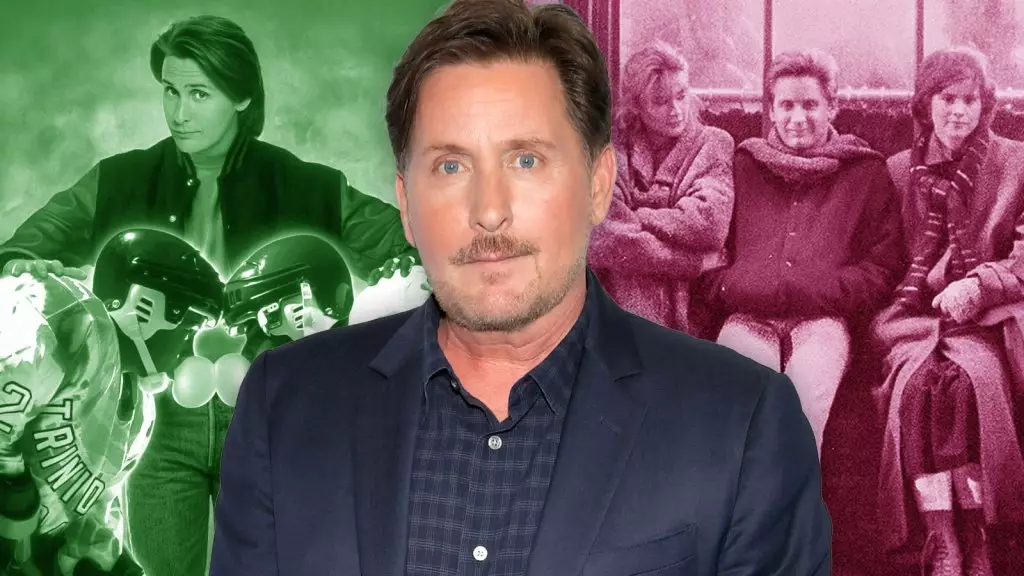Emilio Estevez’s courage to unveil the raw truths of Hollywood is nothing short of refreshing. In a recent interview on the Happy Sad Confused podcast, Estevez provided a masterclass in authenticity while discussing his vision for a new Mighty Ducks sequel and reflecting on the tumultuous set of St. Elmo’s Fire. One may admire his tenacity in wanting to craft a fourth installment of the beloved franchise, a venture he hoped would rectify the missteps of the past. However, it’s even more noteworthy how he navigated the complexities of a corporate structure, where creativity often takes a backseat to contractual obligations.
Estevez’s nostalgic connection to his role as Coach Bombay is palpable, infused with the desire to uplift underrepresented voices in sports. His concept for an all-girl expansion team for the professional women’s hockey league demonstrates a progressive vision amidst a culture that has been historically slow to embrace gender equality in athletics. But there is a stark dissonance when he reveals Disney’s immediate dismissal of his proposal. This raises questions: why is the entertainment industry so reluctant to offer representation and diverse narratives, especially when they come from established talents like Estevez?
The Dark Side of Direction
What makes Estevez’s revelations even weightier is his candidness about his experiences with directors, particularly his harrowing memories with Joel Schumacher on the set of St. Elmo’s Fire. To juxtapose the nurturing environment of John Hughes with Schumacher’s volatile demeanor starkly illustrates the spectrum of directorial styles in Hollywood. Estevez recounting that “have a good f***ing time” was hurled not as advice but as a command from an insecure director speaks volumes about the toxic work environments that can exist in the industry.
This incident ignites critical dialogue about directorial responsibility and the impact of leadership styles on creative collaboration. Estevez’s resolve to never emulate Schumacher’s bullying tactics highlights the urgent need for empathetic leadership in all creative sectors. It is essential for today’s directors and producers—especially those in positions of power—to recognize the real human cost of their interpersonal dynamics. The industry cannot afford to perpetuate cycles of trauma and insecurity; rather, it must encourage a collaborative spirit that inspires, rather than intimidates.
An Artist’s Redemption
Emilio Estevez’s experiences encapsulate the duality of Hollywood—the glitzy exterior masking the often harsh realities behind the camera. His pursuit to resurrect Coach Bombay is not merely about reviving a character; it’s a quest for redemption, both for himself and for an audience that longs for stories of empowerment. In an age when viewers are increasingly drawn to narratives that reflect inclusivity, Estevez’s vision for a female-led hockey team deserves earnest consideration.
He stands as a voice for artists who dare to challenge the status quo, emphasizing that creativity should not be stifled by corporate gatekeeping. As Estevez seeks to carve a path towards a more equitable representation in sports entertainment, one can’t help but wonder how many other talented individuals are silenced by the same forces that dismissed his ambitious ideas. His narrative serves as both a cautionary tale and a rallying cry, urging us to reimagine the boundaries of storytelling.

Leave a Reply